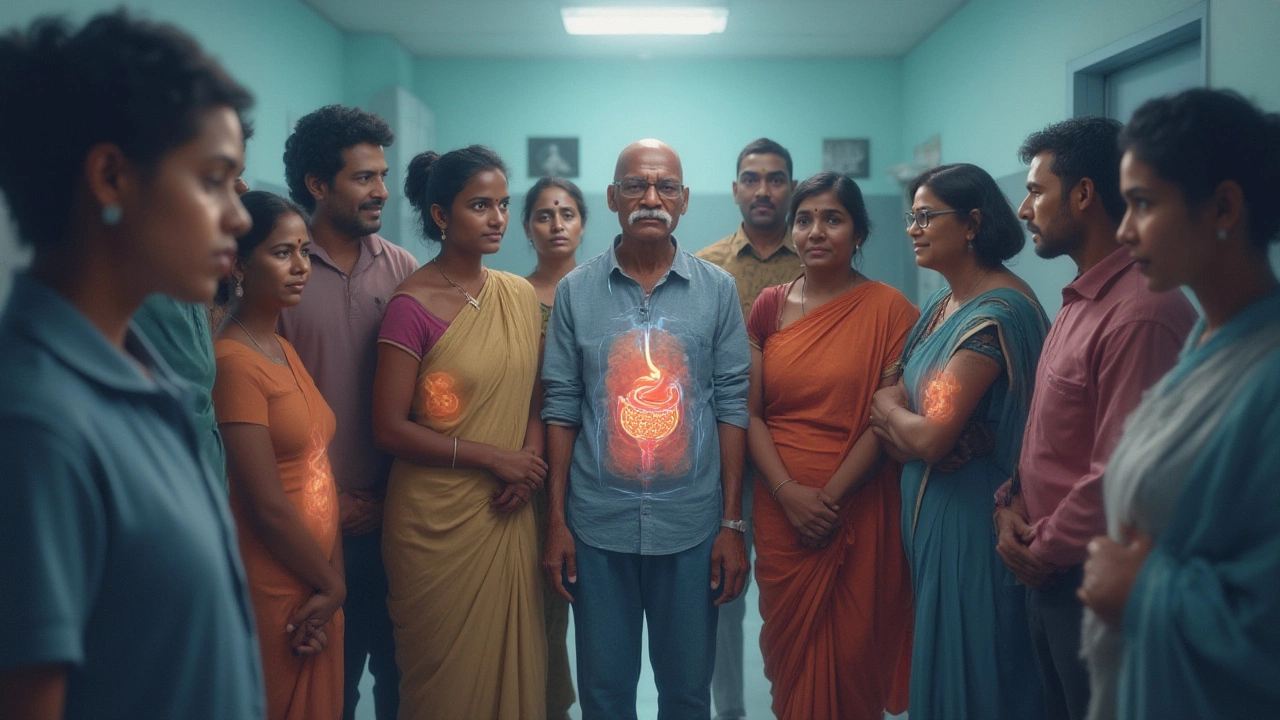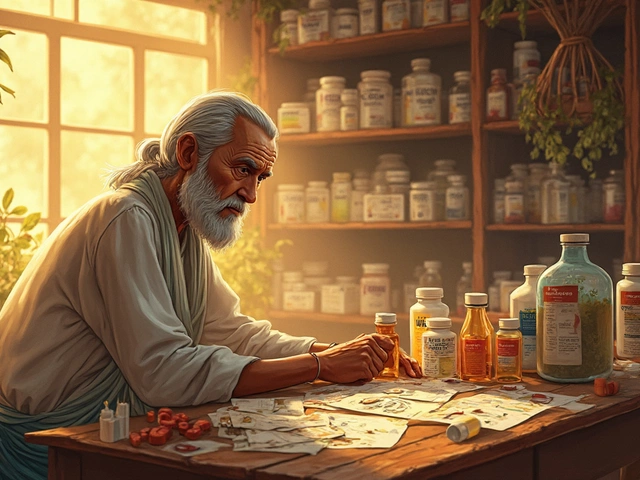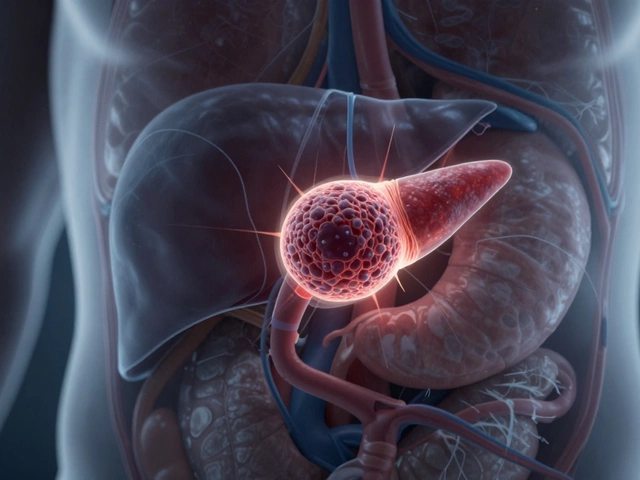Imagine going about your daily life, feeling mostly fine—maybe a little tired now and then, but who isn’t? What if, deep in your body, something dangerous is quietly growing? This isn’t just a scary thought—it’s a reality for many. Cancer is notorious for its ability to stay hidden. Some types build up for years, sneaking past regular checkups and daily routines without setting off any alarms. How long can someone live with cancer without even knowing it's there? Is it a matter of months, or can it be years? Let’s dig into the honest facts, share real numbers, and lay out what everyone should know about silent cancer.
Why Cancer Often Hides in Plain Sight
You’d think something as serious as cancer would shout for attention, right? The truth is, some cancers are like expert infiltrators—they blend in so well with normal life that their first signs are incredibly easy to ignore. The length of time you can live with cancer without knowing changes a lot, but there are some rules to the game. Certain cancers, like pancreatic or ovarian, are especially sneaky. They can lurk for years because their early symptoms mimic things people brush off: fatigue, mild pain, changes in appetite. Others, like some skin cancers or leukaemia, give more notice with clear signs that push people to see a doctor faster.
Take prostate cancer, for example. It can grow very slowly—sometimes it’s found accidentally during autopsies in men who died of unrelated causes. Medical studies have found that up to 70% of men in their 80s have prostate cancer without ever showing symptoms. That’s not a typo. Seventy percent. Similarly, kidney cancers and some thyroid cancers can chill out for years before making themselves known. Often, cancer’s timeline depends on its type, where it is in the body, whether it’s aggressive, and your age and overall health. For example, lung cancer can grow undetected for 10 years or longer before it causes classic symptoms like coughing up blood or chest pain.
This creates a huge problem for doctors and patients. Nobody likes to run to the doctor for every little ache or tiny swelling. But that’s exactly what makes certain cancers so successful at staying hidden. They’re like squatters hiding in an abandoned building—the longer they go unchecked, the more damage they can do and the harder it is to kick them out.
Consider this: in a large study published in the journal Cancer Epidemiology, the average time from first cancer cell to tumor detection ranged from two to seven years depending on the cancer type. Pancreatic cancer might go unnoticed for just under two years, while some lymphomas or leukaemia cases smolder for at least five years or more before diagnosis. Early colon cancer typically doesn’t cause symptoms at all. By the time a person notices blood in the stool or a persistent stomach ache, chances are the disease has been cooking for years already.
How Long Can Silent Cancer Really Stay Hidden?
Here’s where things get real—the length of time you can live with undetected cancer without symptoms depends on a mind-boggling mix of biology, genetics, and plain luck. Some people might notice a problem within months, others might go a decade or more. Looking at some numbers gives perspective:
- For lung cancer, researchers estimate the tumor can quietly double in size every 3-6 months, with an average lag of nearly four years before the first noticeable symptom appears. That means a person could have a lump in their lung growing for years with no cough, pain, or shortness of breath.
- Ovarian cancer often escapes notice until it spreads. The average time for ovarian cancer to go from undetectable to advanced stage is around 3-6 years, according to research from the University of Texas.
- Colorectal cancers can develop from small benign polyps over 10-15 years. Most people never feel anything until the later stages.
- Melanoma, the deadliest skin cancer, can sometimes linger as a small mole for years without changing. But once it starts to change, it moves fast.
There’s even a table that sums up the average hidden period of some common cancers based on published studies:
| Cancer Type | Estimated "Hidden" Period Without Obvious Symptoms |
|---|---|
| Prostate | Up to 10+ years |
| Kidney | 2-7 years |
| Lung | 3-7 years |
| Colon | 5-10 years |
| Pancreatic | 1-3 years |
| Ovarian | 2-6 years |
| Leukaemia (Chronic forms) | 3-8 years |
So yes, it’s entirely possible for cancers to live rent-free inside a person’s body for five to ten years, especially if they’re slow-growing and not blocking anything vital. The risk? The longer they’re in there, the more likely they’ll invade other tissues, making treatment much harder.

Warning Signs That Often Get Ignored
Spotting cancer early isn’t about always looking for dramatic symptoms. The biggest giveaway signs get mistaken for something else—a bug that won’t go away, feeling extra tired, some unexplained weight loss. Here are real warning signs people overlook, with a tip for each on when to act:
- Ongoing fatigue that won’t quit: If you feel drained for weeks despite getting enough sleep, mention it to your doctor. Don’t just blame stress or age, especially if you’re eating well.
- Strange lumps or bumps: If you find a lump anywhere (breast, groin, neck) that sticks around for weeks and isn’t sore, get it checked. Waiting to see if it “goes away” is a big risk.
- Sudden weight loss: Losing more than 5% of your weight in 6 months without changing diet or exercise habits is a red flag. Tumors can use up a lot of your body’s energy without you knowing.
- Unexplained fevers or night sweats: Especially recurring low-grade fevers or waking up soaked in sweat with no infection present—these are classic missed clues for blood cancers and lymphoma.
- Persistent pain: A new ache that doesn’t fade, especially in bones or the back, shouldn’t just be blamed on aging or exercise. Cancers love to hide in these places.
- Gut changes that stick around: Bloating, frequent constipation or diarrhea, or new changes in how your belly feels—all worth mentioning to a health provider if they last more than a month.
- Blood where it doesn’t belong: Blood in pee, stool, or coughed-up phlegm must never be ignored, even if it seems to happen just once.
These signs are NOT always cancer, but they shouldn’t be pushed aside. Think of them as your body’s way of hinting that it needs a closer look. Regular health checkups and speaking up about new symptoms are the best safety net, especially if you have a family history of cancer or other risk factors.
What Makes Early Detection So Tough?
You might wonder—if cancer can be so sly, why don’t routine tests find it early every time? The honest answer: screening isn’t perfect. Most screening tools, like Pap smears, mammograms, PSA tests, or colonoscopies, work best for high-risk groups or certain age ranges. They don’t catch everything, and sometimes cancers are just too small to show up yet. Even blood tests like liquid biopsies, which are improving fast, miss some early cases or give false alarms.
On top of that, the human body is a master of compensation. Feeling exhausted? Most people blame late nights or work stress. A nap and a coffee can mask the warning. Swollen lymph nodes? Must be a cold. These everyday explanations are exactly why early-stage cancers skate by undetected for years. There are real-life stories where people looked back and realized they’d had little hints for months, even years: occasional dizzy spells, a cough that wouldn’t quit, brittle nails, or blurry vision. Nothing that screamed “cancer”—just a bunch of small, ordinary things. That’s why listening to your body and not shrugging off changes is vital, even if it feels awkward or like you’re overreacting.
Plus, healthcare isn’t always easy to access. People skip checkups because of money, time, or fear of what might be found. In rural areas, scans and specialists aren’t always nearby. These are real, everyday reasons cancer keeps its head down until it bursts through with force.

How You Can Outsmart Silent Cancer
Cancer’s sneakiness is no secret, so what can you actually do? First, get familiar with your own normal. Know what your body feels like—skin, lumps, bleeding, aches. Keep track of anything that sticks around or worsens. Many people catch cancer themselves, simply by not ignoring a weird symptom.
- Don’t skip regular checkups, even if you feel healthy. Doctors can spot things you may not notice or think are too minor to mention, and early tests make a real difference.
- If you’re over 50, or have family history of any cancer, ask about appropriate screening. Mammograms, colonoscopies, Pap smears, and PSA tests might be recommended—most major guidelines agree.
- Watch for patterns. If something is new and doesn’t resolve with regular home remedies, don’t delay getting it checked.
- Know the key lifestyle risk factors: smoking, obesity, heavy drinking, and chronic infections (like hepatitis and HPV infections) all lift your risk for certain cancers. Tackling these early reduces your chance of running into trouble down the road.
- Don’t rely on “self diagnosis” or Google alone. Use the internet to get informed, but always take symptoms to a medical professional.
The earlier you catch anything suspicious, the higher your odds are for beating it. Early-stage cancers can often be removed or treated successfully, leading to a normal lifespan. When things get found late, the chances for cure or long-term survival drop steeply. Here’s the truth—about 50% of cancers ARE detected in later stages, simply because their symptoms were so subtle at first.
The good news is, medical tools are rapidly getting sharper at tracking silent cancers. Blood-based cancer markers, DNA tests from saliva, even smartwatches picking up heart rate changes—all of these are being tested right now to help people catch cancer even earlier. The future may be less about “waiting for symptoms” and more about catching cancers before they get dangerous. But until that trickle-down tech reaches everyone, paying close attention and speaking up at the first suspicion remains the best bet.
Too many stories end with “If only I’d gotten checked a year earlier.” Don’t let that be yours. Give your health the benefit of the doubt. Listen when your body whispers—and see a doctor before it shouts.





